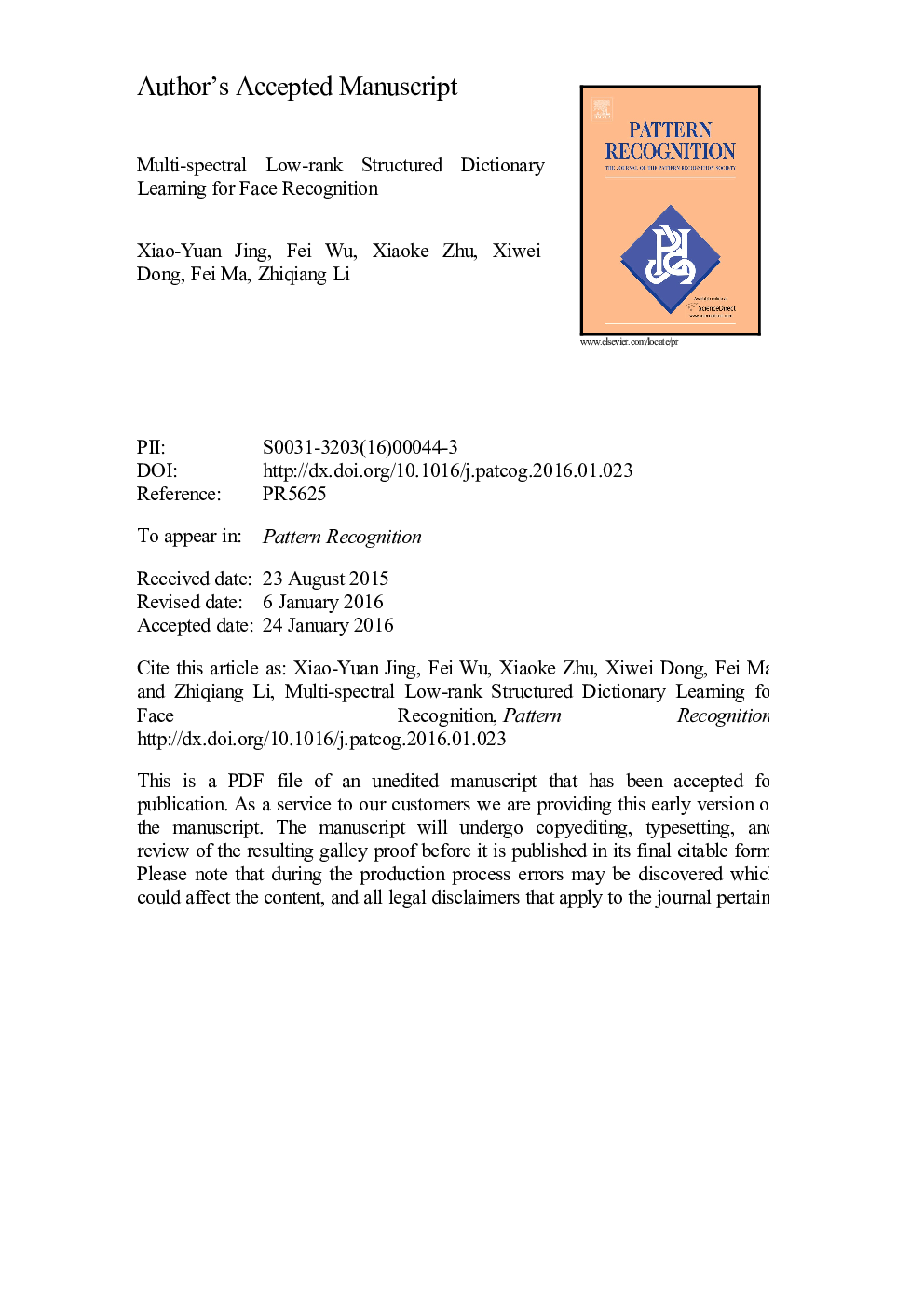| Article ID | Journal | Published Year | Pages | File Type |
|---|---|---|---|---|
| 4969933 | Pattern Recognition | 2016 | 29 Pages |
Abstract
Multi-spectral face recognition has been attracting increasing interest. In the last decade, several multi-spectral face recognition methods have been presented. However, it has not been well studied that how to jointly learn effective features with favorable discriminability from multiple spectra even when multi-spectral face images are severely contaminated by noise. Multi-view dictionary learning is an effective feature learning technique, which learns dictionaries from multiple views of the same object and has achieved state-of-the-art classification results. In this paper, we for the first time introduce the multi-view dictionary learning technique into the field of multi-spectral face recognition and propose a multi-spectral low-rank structured dictionary learning (MLSDL) approach. It learns multiple structured dictionaries, including a spectrum-common dictionary and multiple spectrum-specific dictionaries, which can fully explore both the correlated information and the complementary information among multiple spectra. Each dictionary contains a set of class-specified sub-dictionaries. Based on the low-rank matrix recovery theory, we apply low-rank regularization in multi-spectral dictionary learning procedure such that MLSDL can well solve the problem of multi-spectral face recognition with high levels of noise. We also design the low-rank structural incoherence term for multi-spectral dictionary learning, so as to reduce the redundancy among multiple spectrum-specific dictionaries. In addition, to enhance the efficiency of classification procedure, we design a low-rank structured collaborative representation classification scheme for MLSDL. Experimental results on HK PolyU, CMU and UWA hyper-spectral face databases demonstrate the effectiveness of the proposed approach.
Related Topics
Physical Sciences and Engineering
Computer Science
Computer Vision and Pattern Recognition
Authors
Xiao-Yuan Jing, Fei Wu, Xiaoke Zhu, Xiwei Dong, Fei Ma, Zhiqiang Li,
